Film Shot List Template
Create your film shot list
At its core, a shot list is like a detailed blueprint for each scene, helping directors and the crew visualize the film's flow ahead of time. This foundational organization saves time and money while also bringing out the best in a film narratively.
While we’ll be using StudioBinder’s shot list software to create our film shot list in this guide, the steps apply universally whether you are using a software or just a pen and paper.
Steps in this guide
Step 1
1. Read the Scene
Before you start drafting your shot list, take some time to really read and grasp the scene within the screenplay. Pinpoint the key story beats and elements that are essential for the story. This understanding will help you figure out which shots are needed to tell the narrative effectively.
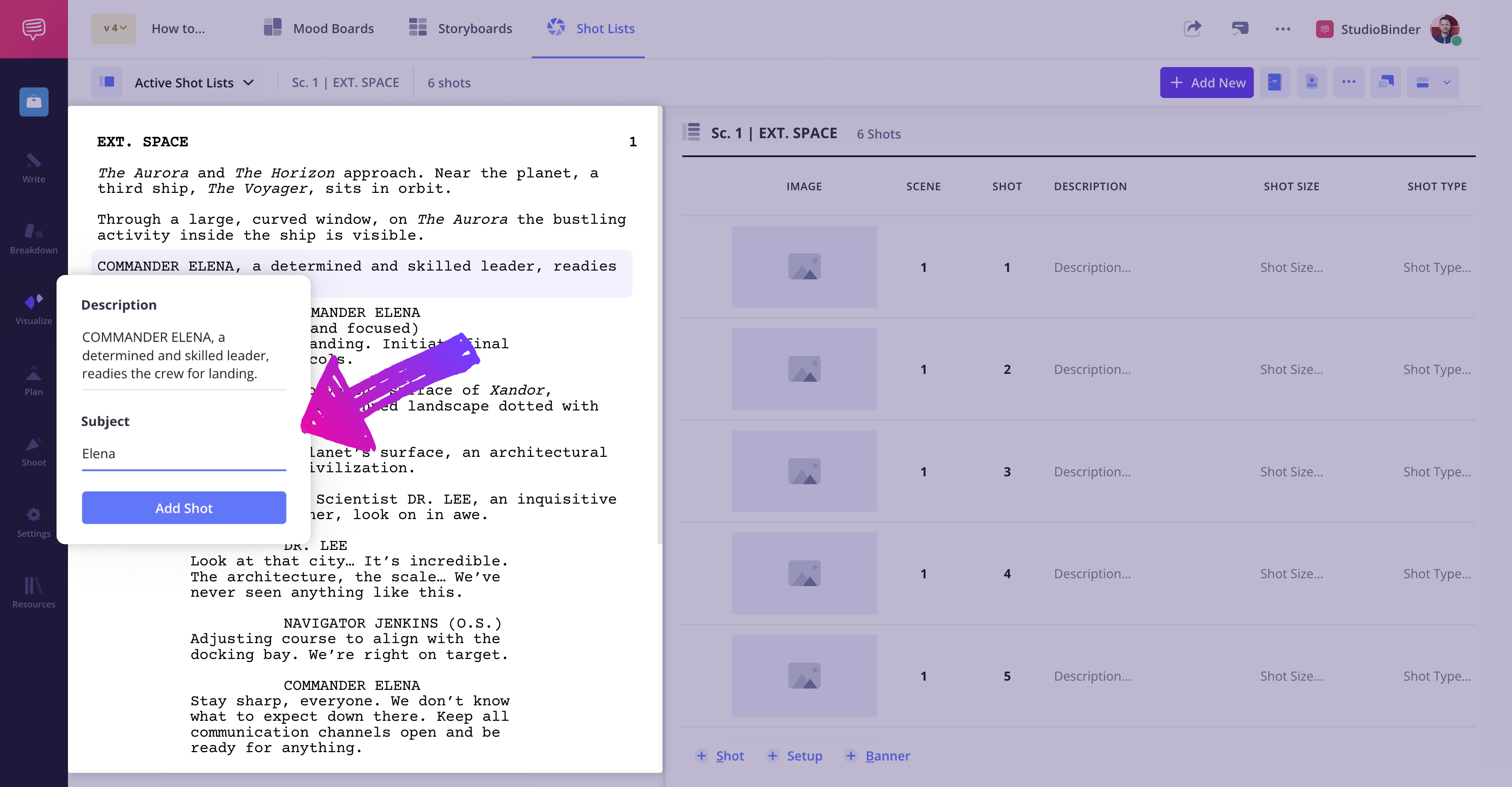
How to do this in StudioBinder
- Import a script to automatically turn scenes into shots.
- Tag each line to create a new shot in the shot list.
Step 2
2. Consider the Shots
Get creative with the shots you need. Think about the effect that different angles, movements, and framing can have on an audience and how they experience the film. A mix of wide shots, close-ups, and unique camera angles can keep the visual storytelling exciting and better tell the story. Get specific with each shot and the specs you want to achieve — whether it's a slow dolly shot or a handheld shot.
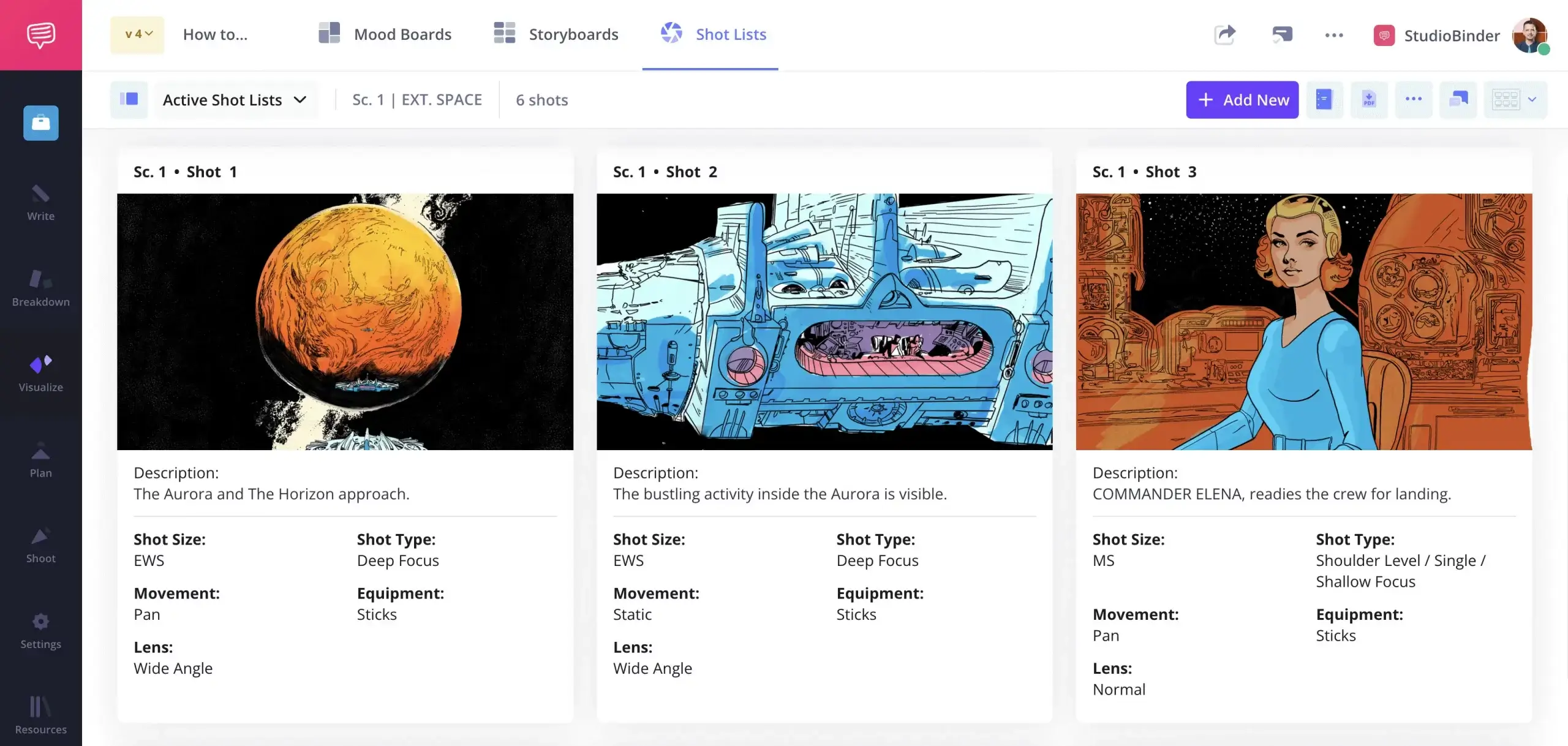

Pro Tip — Collect some reference images from other movies, photography, or art that match the visual style you're aiming for. These references can inspire your shot choices and help share your vision with the crew. They may also inform the storyboarding process later on.
How to do this in StudioBinder
- Select from dozens of shot spec options, camera lens type, shot angle, shot size, subject, location, and more.
Step 3
3. Collaborate
Get key team members like producers, the cinematographer, director, and assistant director involved in the planning process. Their insights can really help refine your shot list, keeping in mind things like timing, equipment availability, and lighting conditions. Feel free to encourage them to share comments or suggest alternatives to make the shooting schedule even better.
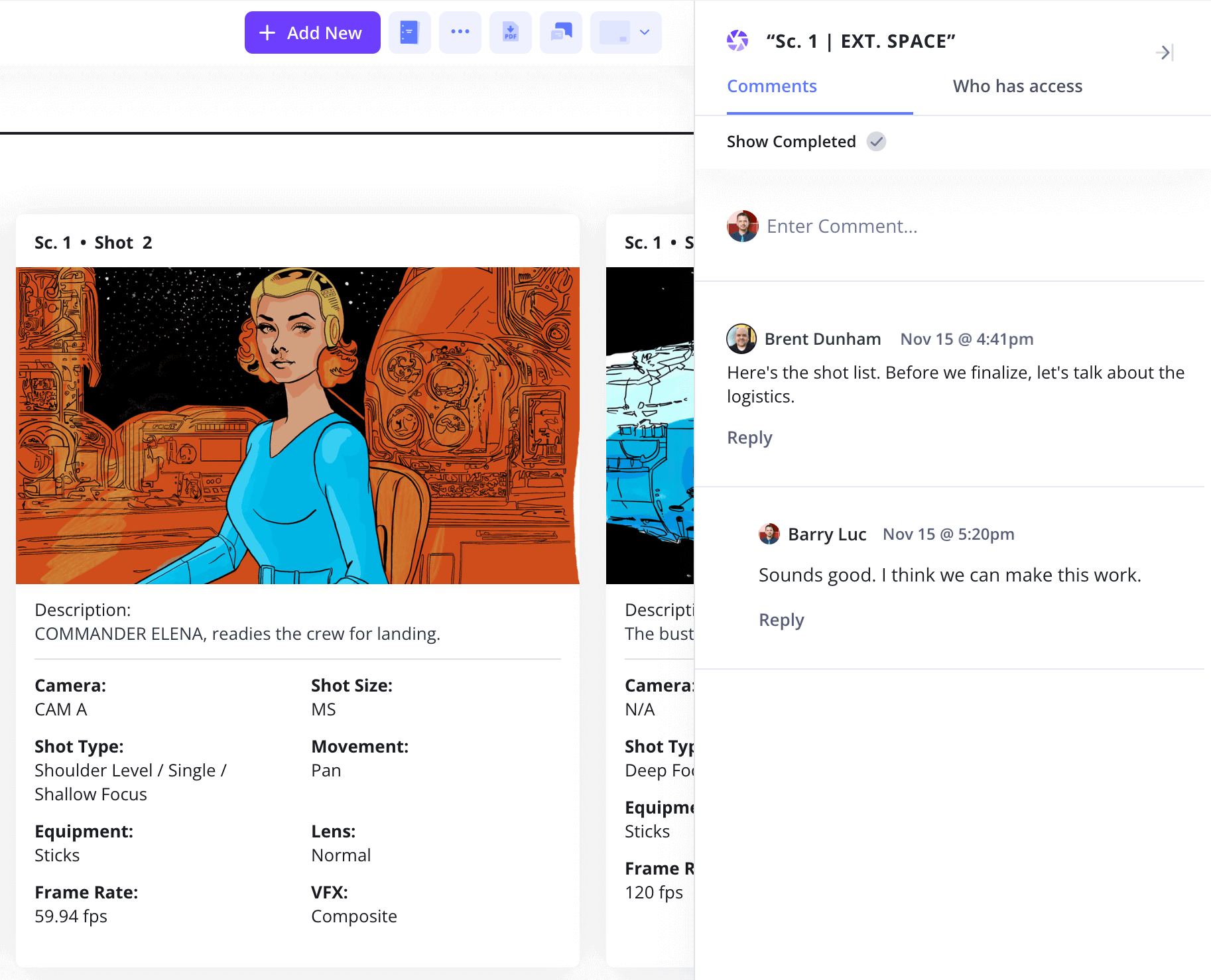

How to do this in StudioBinder
- Share with a view-only link, and invite collaborators to work on this specific feature/page (not the entire project).
- Collaborate with clients and team members with the comment feature.
Step 4
4. Make a Floorplan
Draw up a floorplan of the set or location, showing where the camera and lights will go for each shot. This visual layout makes the setup process smoother on shoot day and ensures everyone understands the spatial setup.
Plus, having a clear plan helps avoid confusion and saves valuable time during production. A simple sketch or digital diagram works just fine.
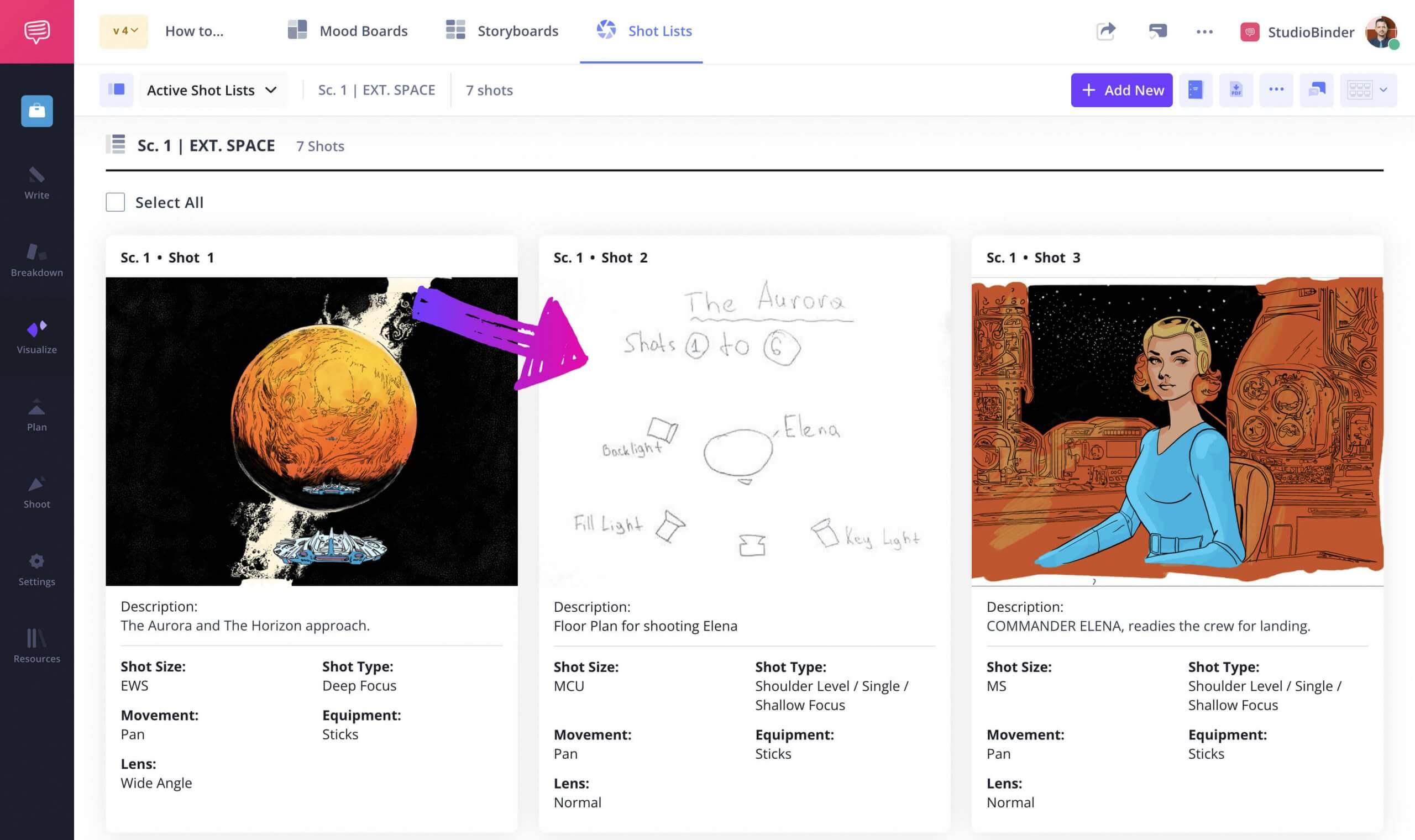

How to do this in StudioBinder
- Upload floor plan images directly to your shot list.
- Use a webcam to scan and adjust the image within the app.
Step 5
5. Group into Setups
Group your shots by similar setups to save time while filming. Think about things like camera angles, lighting, and where the actors are positioned. By organizing this way, you’ll cut down on constant equipment changes and location shifts that cost time and resources, making your shoot day much smoother.
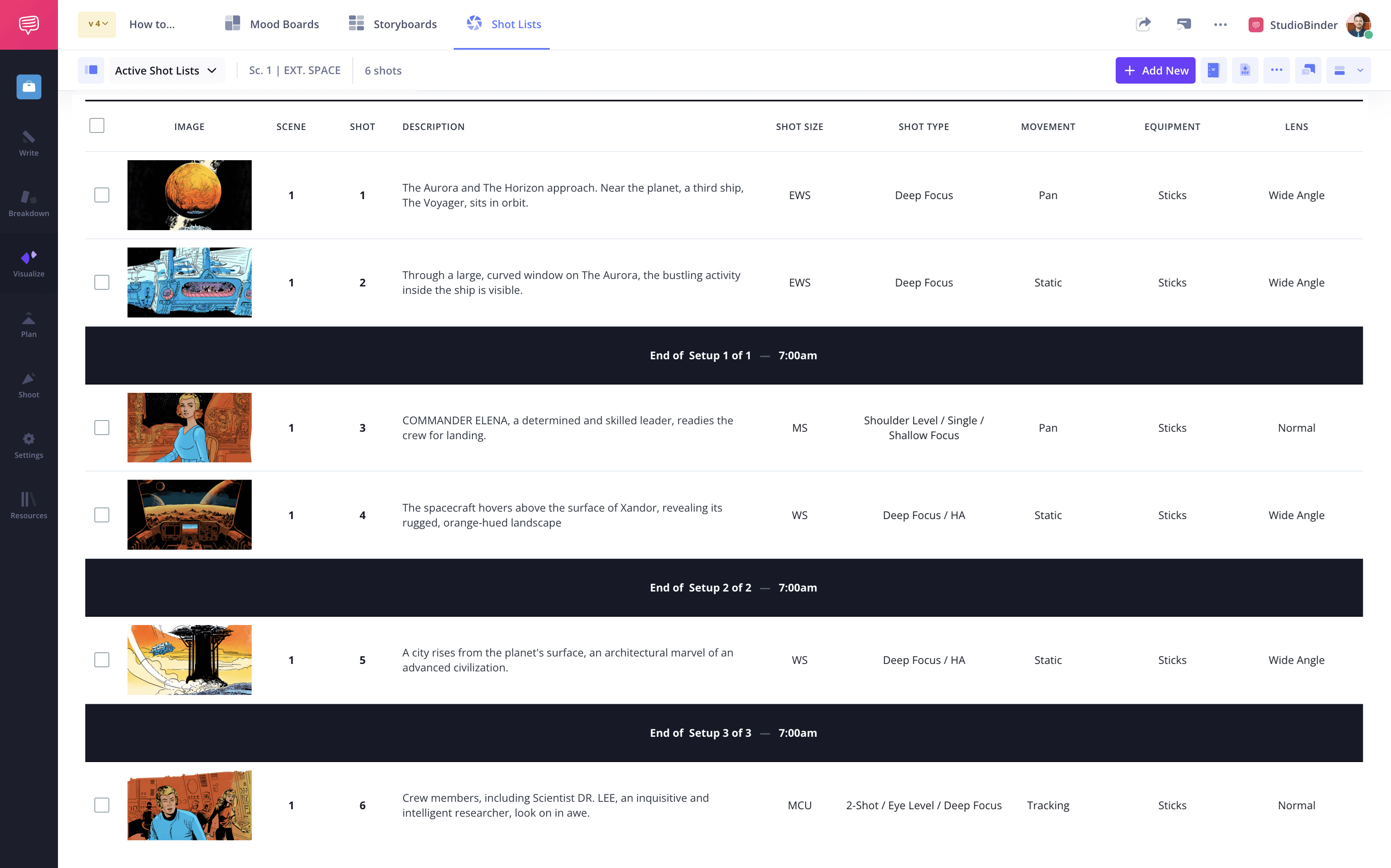

How to do this in StudioBinder
- Organize your shot list in a way that is most efficient for shooting by simply dragging and placing shots.
- Divide your shot list into setups to help guide the crew and schedule.
Step 6
6. Print It
Once you’ve got your shot list ready, print it out for easy reference on set. Make sure to have a few copies for key crew members like the director, cinematographer, producer and assistant director.
Feel free to customize the layout to fit what each team member needs. Some might prefer a technical breakdown, while others may like a more visual guide.
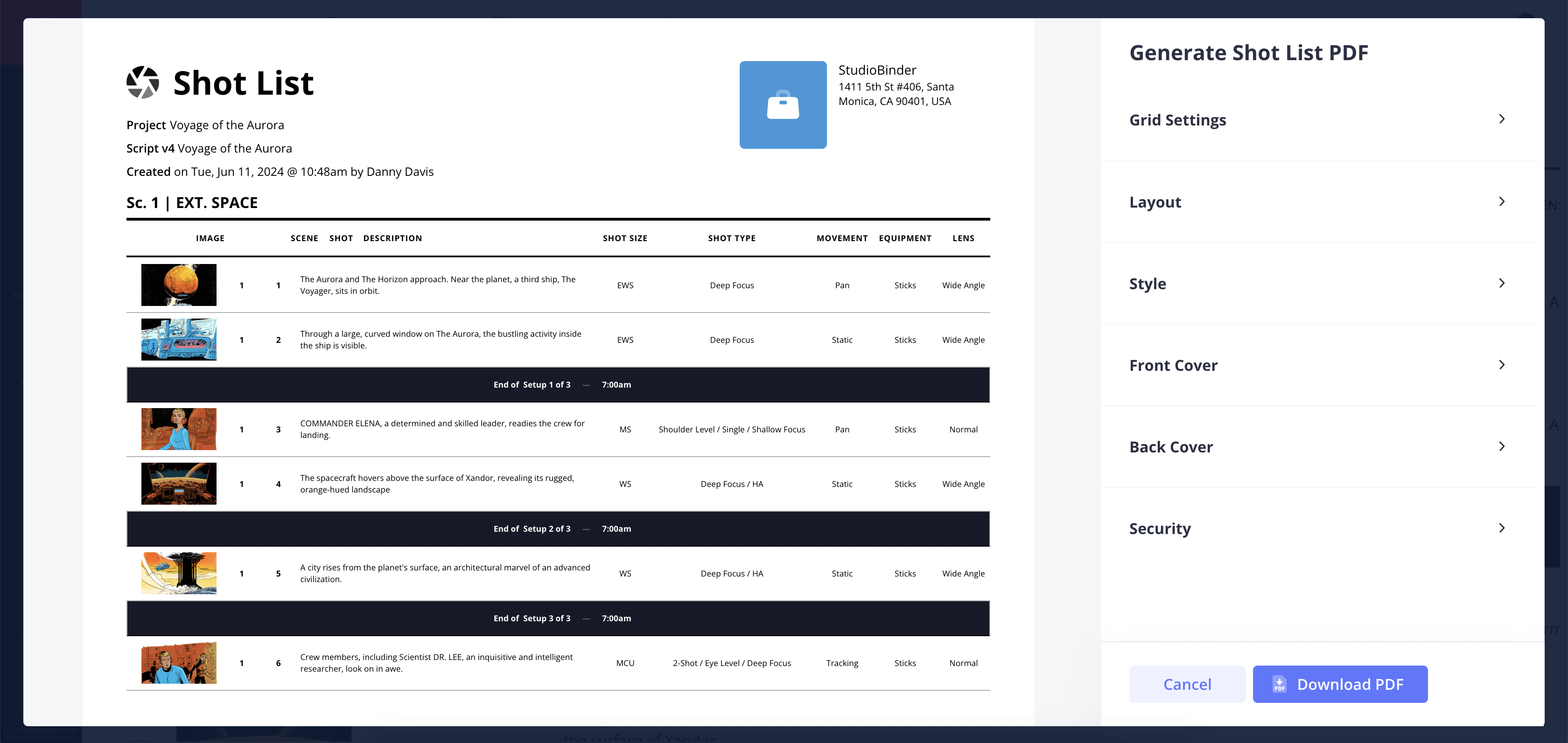

How to do this in StudioBinder
- Generate customizable storyboard PDFs for a professional presentation with added security.
Step 7
7. Mark Shots as You Complete Them
Use your printed shot list to keep track of progress during the shoot. Check off each shot as you complete it to keep the momentum going and make sure nothing gets missed. This approach helps everyone stay organized and makes it easy to adjust if the schedule changes or if you need to revisit any shots.
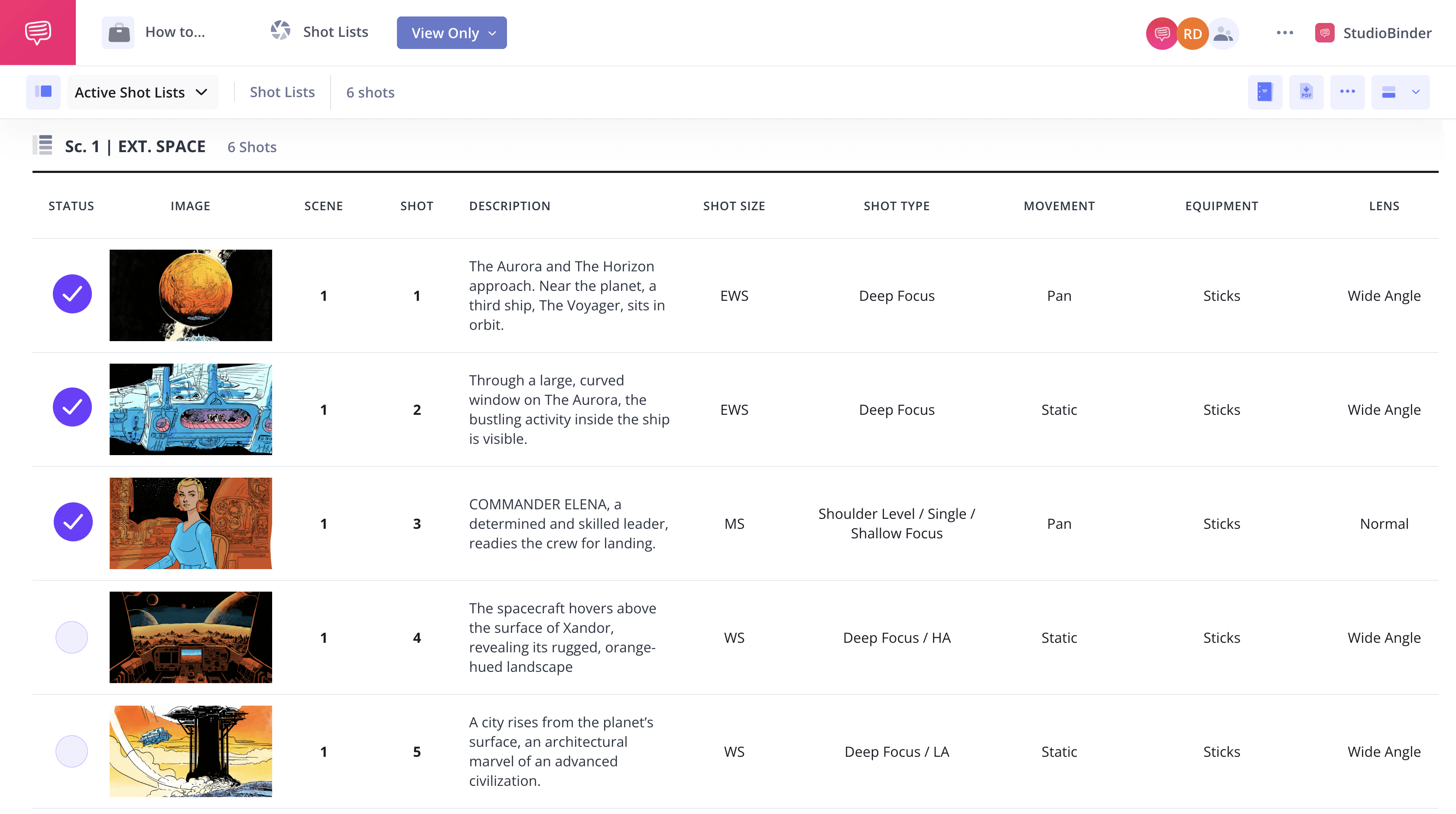

How to do this in StudioBinder
- Check off each shot as you capture within the StudioBinder shot listing app.
Conclusion
Film shot list complete
Creating a shot list isn't just for big blockbuster films—it's a critical tool for productions of any scale. It simplifies the shooting process, minimizes confusion on set, and ensures that you capture all the necessary shots without wasting time.
This shot list template is just one of several options you can choose from. Take a look at our Shot List Templates page to explore the full collection.